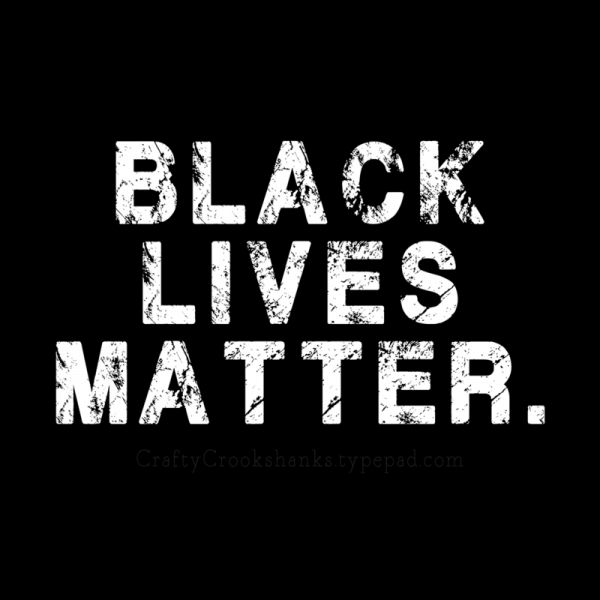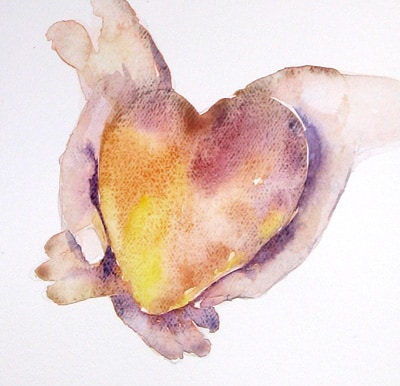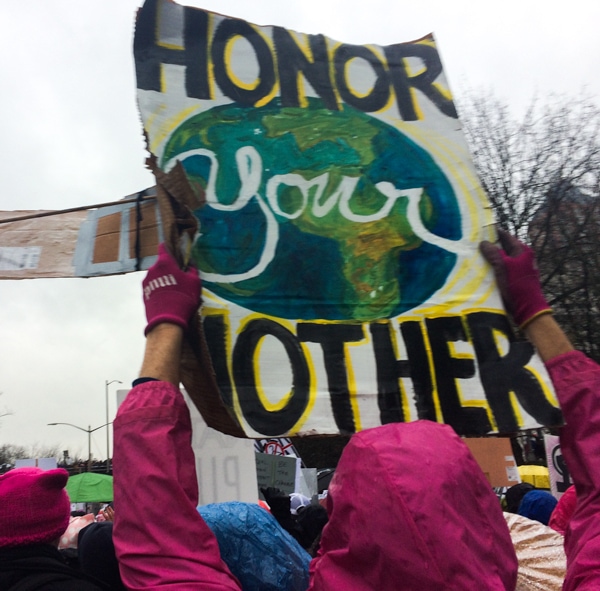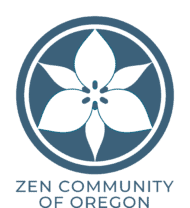Bringing our practice to the streets, to the neighborhoods in which we live, to the schools, the political front and then back home – as Hogen Roshi always asked after we have been apart from sometime, “What have you learned?” And isn’t it true that this practice begins and ends in this heart. We sit on the cushion, stabilizing the mind, opening the heart, returning to the spacious peace in the present. And then we enter the flow of our lives, with this same mind, this same heart, the intention to be present in the midst of the chaos and struggles of a human life. To be present and open to the suffering in the world, is the willingness to be transformed by them, and then our practice only deepens. As everything becomes the path.
Yet, still the question rings. What can I do? How can I releive the suffering in the world? How can I help? How can I bring this practice into the areas of life where there is deep injustice and the potential for great suffering? The Sangha at Heart of Wisdom and Great Vow have been wrestling with these questions. Nan Kyoko has played midwife to these conversations and questions in the Sangha, here is her story.
It is I who must begin…
Once I begin, once I try—
Here and now,
Right where I am,
Not excusing myself
By saying that things
Would be easier elsewhere,
Without grand speeches and
Ostentatious gestures,
But all the more persistently
–to live in harmony
With the “voice of being,” as I
Understand it within myself
—as soon as I begin that,
I suddenly discover,
To my surprise, that
I am neither the only one,
Nor the first,
Nor the most important one
To have set out
Upon that road….
Whether all is really lost
Or not depends entirely on
Whether or not I am lost…
—vaclav havel
There were three of us drinking tea in the evening and talking about the course of racism in our lives.
We were remembering an evening at least a year earlier when Chozen and Hogen walked home after sitting to their Highland St. house. Their neighbors from next door were standing on the sidewalk talking about their concern and fear for the lives of black men in American. The conversation centered on the problem of police violence and the beginnings of the Black Lives Matter Movement.

Because of this experience, Chozen was inspired to put up a sign on her front porch with the names of all those black men killed in encounters with the police, and later added a Black Lives Matter sign in the front yard.
In July last year a few Sangha members got together to discuss what we could do as a Sangha to respond to racial violence, and this discussion led to the formation of the “Zen Community of Oregon Social Justice Group”.

We started by sharing the vulnerable work of our own personal experiences and relationship to race. We did some reading together and worked to clarify and share our knowledge and intentions. Over the next five months we gathered the materials for the resource library (see below), reworked our inclusivity statement and roughed out a mission statement. We talked with the teachers and Sangha leadership about how to merge the Engaged Buddhism activities into the community.
The name “Engaged Buddhism” was a joint project reeling in many members of the community to consider how Zen Community of Oregon might include everything under one name! We wanted a name big enough to support our inclusivity statement, and to provide an umbrella for future focus.

Throughout 2017 there will be an evolving schedule of events that address the social justice questions confronting our world. Currently, thirty-six members of the community are attending the Awakening to Whiteness program taught over the next six months by Dharma Holder Laura Jomon Martin. This program addresses the inequality that exists in our culture today and encourages “white” people to look closely at the systemic and covert biases that are embedded in all of us.
This year we will have retreats, dharma talks and opportunities for education in hopes of reaching a deeper understanding of the ways in which our culture restricts freedom and creates suffering . We want to make time this year for a sangha-wide discussion about what we, individually, are already doing to create social justice, and what we wish to do in the future.. We envision Engaged Buddhism as the umbrella that will shelter the sangha‘s many social justice concerns: racial justice, climate change, disability access and child hunger (the backpack program).
GROUP ASPIRATIONS
1) We will seek to embody interdependence and to promote the Bodhisattva Vow of mutual liberation of all beings.
2) We will provide a means within the Zen Community of Oregon to increase awareness of, and respond to suffering — including but not limited to, race, sex, class, age, ethnicity, national origin, religion, political affiliation, ability, sexual orientation, and gender identity or expression—through the lens of the Dharma.
3) We will take action informed by the Dharma, and by our own deep personal practice.
4) We will encourage white Sangha members to be responsible for increasing their own awareness of systems of oppression, making the ongoing work of understanding an integral part of Sangha life, rather than relying on People of Color for this work. We regard this work as an imperative in our practice. This requires the investigation of suffering, and clarifies our response to suffering.
5) We will recommend responses and actions to the leadership and Sangha of the Zen Community of Oregon
6) We will treat one another with words and actions humbly grounded in the precepts. We will speak from our own experience. We will be generous with one another, always giving the benefit of the doubt. We will hold confidences, and hold one another with compassion and loving kindness.
7) We will focus our efforts on collaborating locally, especially within our neighborhood, and align ourselves with other spiritual and religious communities for the benefit of all.

ZCO ENGAGED BUDDHISM RESOSURCE LIST:
https://docs.google.com/document/d/1yC0anlph5ynzPoaiSRg6R6r0Ft9ByfyPdc5H…
This site contains many useful resources for social justice education and original documents regarding social justice topics published by the white plum sangha social justice committee including a letter on Standing Rock.
If you would like to know more about Engaged Buddhism at the Zen Community of Oregon, email Nan Kyoko Whitaker-Emrich or sign up for the google group by emailing
Kodo Conover and she will put you on the list.
